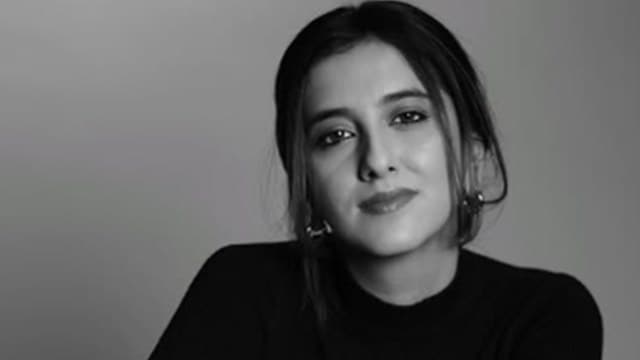📣 For more lifestyle news, click here to join our WhatsApp Channel and also follow us on Instagram
Humans of Bombay CEO Karishma Mehta freezes her eggs at 32, says ‘been meaning to do this for a while’
The procedure is called oocyte cryopreservation and is said to be particularly advantageous for those who wish to delay parenthood
 Karishma Mehta shares a life update (Photo: Karishma Mehta/Instagram)
Karishma Mehta shares a life update (Photo: Karishma Mehta/Instagram)Karishma Mehta, Humans of Bombay CEO, recently shared that after considering egg freezing for a while, she finally decided to take the plunge. “Been meaning to do this for a while and finally got around to it. I froze my eggs at the beginning of the month,” the 32-year-old wrote in an Instagram post alongside a picture of her hand supported by another person. She also shared her professional and personal milestones from January 2025.
Taking a cue from her, let’s understand the right age to freeze eggs.
Dr Shobha Gupta, medical director and IVF specialist, Mother’s Lap IVF Centre New Delhi and Vrindavan, shared that the best age to freeze eggs is often between 30 and 34 as the quality and quantity of eggs are higher, which plays a role in determining a successful pregnancy in the future. “As women age, particularly after 35, both the quality and quantity of eggs tend to decline significantly,” said Dr Gupta.
The expert added that it is an empowering option for women looking to enhance their reproductive potential, ensuring their fertility goals align with life plans.
Anti-mullerian hormone (AMH) fertility testing gives an estimate of the remaining egg supply or ovarian reserve, said Dr Sulbha Arora, clinical director, Nova IVF Fertility, Mumbai. “High AMH levels mean one has a high number of eggs and will respond to fertility treatments in a better way,” said Dr Arora.
 Egg freezing is also a critical discussion to have (Source: Getty Images/Thinkstock)
Egg freezing is also a critical discussion to have (Source: Getty Images/Thinkstock)
The procedure is called oocyte cryopreservation and is said to be particularly advantageous for those who wish to delay parenthood for personal, professional, or health reasons. Hormone injections are used to stimulate egg production, followed by an egg retrieval procedure. Then, the eggs are frozen at subzero temperatures. Dr Gupta said, “Egg freezing offers women greater control over their reproductive future, providing a reliable option to balance career and family life without compromising fertility.”
What to note?
Age, cost, storage fees, and future reproductive goals need to be considered.
“Egg freezing typically involves hormone injections and an egg retrieval procedure, so physical and emotional readiness is key. Financially, the process can be costly and isn’t usually covered by insurance,” said Dr Gupta.
View this post on Instagram
While the procedure is non-invasive and has low risk, Dr Gupta noted that, like with any medical procedure, rare complications are possible. “Egg freezing has evolved significantly, making it safer and more accessible,” said Dr Gupta.
DISCLAIMER: This article is based on information from the public domain and/or the experts we spoke to. Always consult your health practitioner before starting any routine.
📣 For more lifestyle news, click here to join our WhatsApp Channel and also follow us on Instagram





- 01
- 02
- 03
- 04
- 05






















